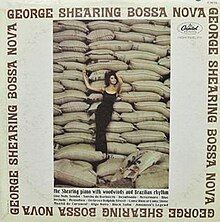
Antônio Carlos Brasileiro de Almeida Jobim, also known as Tom Jobim, was a Brazilian composer, pianist, guitarist, songwriter, arranger, and singer. Considered as one of the great exponents of Brazilian music, Jobim merged samba with cool jazz in the 1960s to create bossa nova, with worldwide success. As a result, he is regarded as one of the fathers of bossa nova, and as one of the most-celebrated songwriters of the 20th century.

Getz/Gilberto is an album by American saxophonist Stan Getz and Brazilian guitarist João Gilberto, featuring pianist and composer Antônio Carlos Jobim, who also composed many of the tracks. It was released in March 1964 by Verve Records. The album features the vocals of Astrud Gilberto on two tracks, "Garota de Ipanema" and "Corcovado". The artwork was done by artist Olga Albizu. Getz/Gilberto is a jazz and bossa nova album and includes tracks such as "Desafinado", "Corcovado", and "Garota de Ipanema". The last received a Grammy Award for Record of the Year and started Astrud Gilberto's career. "Doralice" and "Para Machucar Meu Coração" strengthened Gilberto's and Jobim's respect for the tradition of pre-bossa nova samba.

Jazz Samba is a bossa nova album by Stan Getz and Charlie Byrd released by Verve Records in 1962. Jazz Samba signaled the beginning of the bossa nova craze in America. Stan Getz was the featured soloist and the tracks were arranged by Charlie Byrd, who had first heard bossa nova during a tour of Brazil in 1961.

João Voz e Violão is a bossa nova album by João Gilberto, released in 2000. Recording very little in the 1990s, this album is Gilberto's first studio album since 1991's João. The album won the 2001 Grammy Award for Best World Music Album.
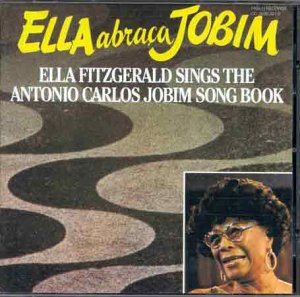
Ella Abraça Jobim or Ella Fitzgerald Sings the Antonio Carlos Jobim Songbook is a 1981 studio album by Ella Fitzgerald, devoted to the songs of Antônio Carlos Jobim.

The Composer of Desafinado, Plays is the first album by Antônio Carlos Jobim. Released in 1963, the album features a dozen instrumentals arranged by Claus Ogerman, whose work would mark the beginning of a lifelong musical relationship with Jobim. Of these twelve songs, nearly all of them are jazz standards. The opening track "The Girl from Ipanema" is believed to be the second most recorded song in history behind The Beatles' "Yesterday," and a recording of the song by Astrud Gilberto and Stan Getz became a worldwide hit in 1964.
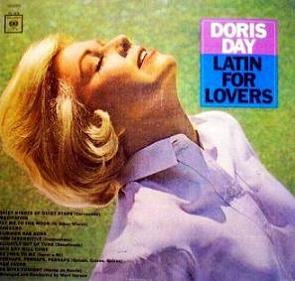
Latin for Lovers was a Doris Day album, mostly composed of songs originating in Latin America, released by Columbia Records on March 22, 1965 as a monophonic LP and a stereophonic album.
"Samba de uma Nota Só", known in English as "One Note Samba", is a bossa nova and jazz standard song composed by Antônio Carlos Jobim with Portuguese lyrics by Newton Mendonça. The English lyrics were written by Jon Hendricks. It was first recorded by João Gilberto in 1960 for his album O Amor, o Sorriso e a Flor.
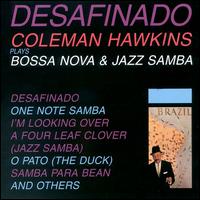
Desafinado is an album by American jazz saxophonist Coleman Hawkins featuring performances recorded in 1962 for the Impulse! label.
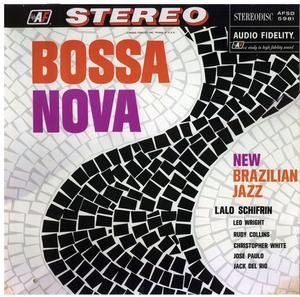
Bossa Nova: New Brazilian Jazz is an album by Argentine composer, pianist and conductor Lalo Schifrin recorded in 1962 and released on the Audio Fidelity label. The album was released during the height of the popularity of bossa nova music in the early 1960s and was one of Schifrin's earliest solo albums after leaving Dizzy Gillespie's band.
"Pensativa" is a bossa nova jazz standard by American pianist/composer/arranger Clare Fischer, first recorded in 1962 by a quintet under the joint leadership of Fischer and saxophonist Bud Shank, and released that year as part of an album entitled Bossa Nova Jazz Samba, comprising music in this style, as per its title, all of it arranged by Fischer, and, with the exception of Erroll Garner's "Misty", composed by him as well. In retrospect, this would prove to be just the first of countless forays by Fischer into various areas of Latin music. This particular song was one of the first, and almost certainly the most famous, of all the foreign-born - i.e. non-Brazilian - bossa novas. Its form, though extended (64 mm.), is standard A-A-B-A, with each section consisting of 16 measures instead of eight.
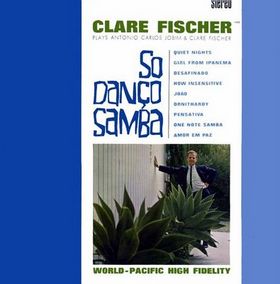
So Danço Samba is the fourth album by keyboardist/composer-arranger Clare Fischer, and his first in the bossa nova vein, recorded and released in 1964 on the World Pacific label. Devoted primarily to the music of Antonio Carlos Jobim, it also features three of Fischer's own compositions.
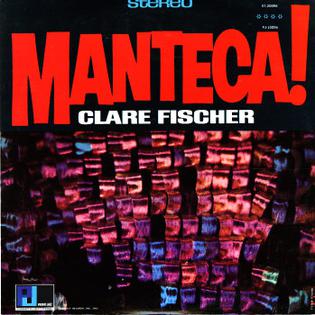
Manteca! is an album by composer/arranger/keyboardist Clare Fischer, released in November 1965 on the Pacific Jazz label. Following his previous album, So Danço Samba, devoted primarily to the music of Antonio Carlos Jobim, and to the bossa nova in general, with this, his first devoted to Afro-Cuban jazz. Fischer also used the occasion to unveil what would become his second bona fide jazz standard, Morning.

Big Band Bossa Nova is a 1962 album by saxophonist Stan Getz with the Gary McFarland Orchestra. The album was arranged and conducted by Gary McFarland and produced by Creed Taylor for Verve Records. This was Getz's second bossa nova album for Verve following Jazz Samba, his very successful collaboration with guitarist Charlie Byrd.

Do the Bossa Nova with Herbie Mann is an album by American jazz flautist Herbie Mann recorded in 1962 for the Atlantic label.

Bossa Nova Jazz Samba is an album by saxophonist Bud Shank and pianist Clare Fischer released on the Pacific Jazz label, and is in the genre of bossa nova.
"Once I Loved" is a bossa nova and jazz standard song composed in 1960 by Antônio Carlos Jobim, with lyrics by Vinícius de Moraes. Words in English were later added by Ray Gilbert. In a few early cases, the song was also known as, a translation into English of the original Portuguese title.
"Só Danço Samba" is a bossa nova song composed in 1962 by Antônio Carlos Jobim, with lyrics by Vinicius de Moraes. English lyrics were later written by Norman Gimbel. On occasion, it has also been known as "Jazz Samba" and "I Only Dance Samba", an English translation of the original Portuguese title.
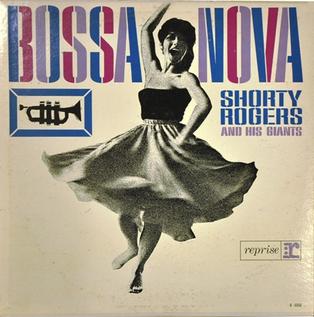
Bossa Nova is an album by American jazz trumpeter, composer and arranger Shorty Rogers, released on the Reprise label in 1962.

Big Band Bossa Nova is a studio album by Enoch Light and His Orchestra. It was released in 1962 on Command Records. The musicians performing solos included Doc Severinsen on trumpet, Tony Mottola on guitar, Phil Bodner on woodwinds, and Bobby Byrne on trombone.
